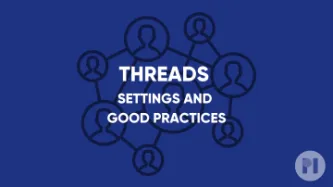Search
Content type: Advocacy
We have been concerned about the expansion of EdTech includes a wide range of tools that enable the surveillance of students and academic staff, often facilitating monitoring by both public authorities and private entities.We brought our concerns responding to the UN Special Rapporteur on education call for contributions on safety as an element of the right to education and a precondition for its full realization.We considered this report an essential platform to examine the complex interplay…
Content type: Examples
Popular educational apps have access to reams of private data that could result in privacy and security violations, a new study has found.25 apps were tested, with many found to request access to the users’ camera, calendar, location, contacts, and the ability to record audio, among other permissions.Apps like Canvas Student, Coursera, Duolingo, Remind, and Simplilearn can access Google, Meta, and Samsung accounts on the device - something that is not necessary for them to work, but which could…
Content type: Legal Case Files
Content type: Press release
On 18th August 2025, Privacy International has issued a formal complaint to the UK Information Commissioner (ICO) about the Home Office’s (HO) use of two automated tools in immigration enforcement operations, which PI argues do not adequately comply with the UK General Data Protection Regulation (GDPR) and Data Protection Act 2018 (DPA 2018). The Identify and Prioritise Immigration Cases (IPIC) tool and the Electronic Monitoring Review Tool (EMRT) appear to be used to make life-altering…
Content type: Long Read
On the basis of a year of legal research by PI as well as documents obtained by other civil society organisations, and evidence provided by legal representatives fighting these automated systems on behalf of their clients, on the 18th August 2025, we issued a formal complaint to the UK Information Commissioner (ICO) regarding the UK Home Office’s use of two ‘automated recommendation-making tools’ (ARMTs), the Identify and Prioritise Immigration Cases tool (IPIC) and the Electronic Monitoring…
Content type: Video
Links Maria's original rewilding article, with Robin Berjon, in Noema Maria's article 'This is your phone on feminism'A talk Maria gave about rewildingMaria's website where you can keep an eye to find out when her book is coming out!London Centric and the F**k you busMore about PI's work on competition
Content type: Guide step
TikTok can be an important tool for individuals to access information and spread messages and ideas around the globe. For these reasons, it’s not possible for some people to simply stop using it. However, we continue to be very concerned about the company’s conduct.This guide includes:Two-factor authenticationMaking your account privatePreventing TikTok from suggesting your accountLimit your content visibilityBlock userReviewing third party apps with access to your dataMinimising targeted ads…
Content type: News & Analysis
Freedom of Information (FOI) requests have revealed the rapidly increasing scale of police mass facial recognition searches against the passport and immigration databases. New figures reveal that the number of searches of the passport database has “skyrocketed” from 2 in 2020 to 417 in 2023, and an almost sevenfold increase from 16 searches of the immigration database in 2023, to 102 in 2024. The Home Office and police forces are conducting these searches against over 150 million photos of the…
Content type: News & Analysis
Yesterday the Investigatory Powers Tribunal announced next steps in Apple’s and PI’s challenges to the purported UK order undermining iCloud’s security.The Tribunal declared that it will aim to hear much of Apple’s case, as well as PI and our co-claimants’, in public based on assumed facts. The Tribunal will convene a seven day hearing to be scheduled in early 2026. Its aim will be to hear Apple’s case and PI’s case during those seven days.This ‘case management order’ follows submissions from…
Content type: News & Analysis
We’ve been warning for a while now about the risks of AI Assistants. Are these assistants designed for us or to exploit us?The answer to that question hinges on whether the firms building these tools are considering security and privacy from the outset. The initial launches over the last couple of years were not promising.Now with OpenAI’s agent launch, users deserve to know whether these firms are considering these risks and designing their service for people in the real world. The OpenAI…
Content type: Video
LinksLearn more about Repro uncensoredRepro Uncensored incident report formAdriana Smith's caseMore about Adriana's casePrivacy International's Menstruation apps researchResearch on Bing's Typo-searchingMSI on the Global impact of Roe V. Wade being overturnedReport by Fòs Feminista on the Global Impact of the Dobbs DecisionMeta getting rid of factchecking functionAmazon USA report called Obstacles to Autonomy, which includes info on advertising account restrictionsAn report by the Independent…
Content type: Long Read
In June 2025, a team of researchers exposed how Meta and Yandex abused Android and browser-specific tools to track users outside of their application and collect associated data. The technique used to achieve this was truly innovative, and akin to malware behaviour. It exploited protocols to break the isolation between apps and browser, a fundamental security concept meant to protect users. This allowed these companies to tie the browsing history of individuals with their accounts on the…
Content type: Advocacy
On 10 March 2025, Privacy International (PI) attended the 32nd Session of the Committee of the Convention on the the Rights of Persons with Disabilities (CRPD Committee) in Geneva, and participated in a private briefing to the Committee on the European Union (EU).As part of PI's work promoting Economic and Social Justice, we have been advocating on concerns surrounding the link between privacy, personal data and technology use and the rights of persons with disabilities. To this end, we…
Content type: News & Analysis
It feels like WhatsApp is everywhere. Who isn’t familiar with the gentle ding as a message arrives - the relentless group chats, or the customer service bots? According to recent statistics, the service is used regularly by nearly 3 billion people around the world. Its core service - end-to-end encrypted messaging - is essential in today’s society.But private messaging services like WhatsApp are costly to run, and not something people are accustomed to paying for. Securing an income stream for…
Content type: Guide step
Whatsapp (owned by META) is one of the most popular end-to-end encrypted messaging service. If you use it on your day-to-day it's worth reviewing some of your current settings and how you are making use of the platform.
This guide includes:
Chat backup settings
Visibility settings
App permissions
Managing desktop sessions
App security and two-factor authentication
Good Practices
Chat backup settings
This is one of most important settings to consider in WhatsApp. Because WhatsApp is end to end…
Content type: Guide step
If you use Viber on your day-to-day it's worth reviewing some of your current settings and how you are making use of the platform.
This guide includes:
Chat backup settings
Visibility settings
App permissions
Managing sessions
Good Practices
Deactivating your account
Chat backup settings
This is a key setting to look into. Viber states that is is end to end encrypted, which means that messages are only accessible by both the sender and the receiver, not being stored anywhere along the way.…
Content type: Guide step
Threads (part of Meta) can be an important tool for individuals to spread messages and ideas around the globe. For these reasons, it’s not possible for some people to simply stop using Facebook. However, we continue to be very concerned about the company’s conduct.
This guide includes:
Two-factor authentication
Making account private
Blocking user
Minimising targeted ads on Threads
Good Practices
Two-factor authentication
Two-Factor authentication provides an extra security step in order to…
Content type: Guide step
Instagram (part of Meta) can be an important tool for individuals to spread messages and ideas around the globe. For these reasons, it’s not possible for some people to simply stop using Instagram. However, we continue to be very concerned about the company’s conduct.
This guide includes:
Two-factor authentication
Making your account private
Block user
Reviewing third party apps with access to your data
Minimising targeted ads on Instagram
Good practices
Two-factor authentication
Two-Factor…
Content type: Guide step
Facebook (part of Meta) can be an important tool for individuals to spread messages and ideas around the globe. For these reasons, it’s not possible for some people to simply stop using Facebook. However, we continue to be very concerned about the company’s conduct.
This guide includes:
Profile settings
Post settings
Reviewing third party apps with access to your data
Minimising targeted ads on Facebook
Good practices
Profile Settings
In this section we take a look at profile settings, namely…
Content type: Examples
US National Geospatial-Intelligence Agency awards $24 million for AI-enabled monitoring technologies
BlackSky Technology Inc. has secured a $24 million, four-year delivery order from the National Geospatial-Intelligence Agency (NGA) as part of the Luno A Facility Operational Monitoring (FOMO) programme. BlackSky will use its AI-powered monitoring system to track changes in activity at global military and economic sites, including ports, airfields, railways, and military bases. The system integrates real-time satellite imagery with AI to deliver rapid intelligence. The company already monitors…
Content type: Examples
Sierra Space has been contracted by the U.S. Space Force’s Space Systems Command to design next-gen “Resilient GPS” (R‑GPS) satellites. These are smaller, cost‑effective satellites intended to bolster the existing GPS constellation and protect them against jamming and spoofing by adversaries. The R-GPS program gained pace as per the new “Quick Start” authority established under Section 229 of the National Defense Authorization Act. This provision empowers the U.S. Space Force to rapidly launch…
Content type: Examples
The contract to be delivered by Thales Northern Ireland has been granted by the Ministry of Defense on behalf of the Ukrainian Government. According to the deal, Thales will produce more than 5,000 lightweight-multirole missiles to be used by Ukraine. A Ukrainian manifacturing partner will produce launchers and necessary equipment for the deployment of the missiles. The initial worth of the contract is £1.16 billion and it can potentially rise £500 million more.https://www.gov.uk/government/…
Content type: Examples
The European Commission and the European Investment Fund announced its investment of €40 million in Keen Venture Partners in an effort to support defence-tech innovation in Europe. The investment is made under the Defence Equity Facility of the EU, a €175 million initiative to boost the private investment field for defence in the EU. Keen Venture is a company that invests in emerging startups at the forefront of defense and security, with a particular interest in cutting-edge technologies like…
Content type: Examples
Draganfly Inc. has secured a contract with the Cochise County Sheriff’s Department to deploy drones for enhanced surveillance and rapid-response missions along the southern U.S. border. According to the company, the initiative “positions Cochise County as a national model for technology-enabled border enforcement”.https://uk.investing.com/news/company-news/draganfly-drones-to-boost-cochise-county-border-surveillance-93CH-4126537Publication: investing.com
Content type: Examples
Planet Labs PBC, a leading provider of satellite imagery and geospatial solutions, has been awarded a substantial seven-figure contract by NATO to deliver a platform solution to support continuous space-based surveillance, delivery of early warning signals and strenghtening of Maritime Domain Awareness (MDA). The platform solution is expected to incorporate Artificial Intelligence and Machine Learning analytics.https://www.businesswire.com/news/home/20250612808959/en/NATO-Selects-Planet-for-…
Content type: Examples
Denmark, Finland, Norway and Sweden signed a Strategic Partnership Agreement (SPA) with Nammo AS to provide ammunition production and delivery for the Nordic countries. The first partnership agenda is on the production of artillery and small arms calibres worth $155 million. Beyond this, the partnership will also focus on research and development for defence and joint ammunition use among these countries.https://defence-industry.eu/nordic-countries-sign-strategic-ammunition-partnership-…
Content type: Examples
Sweden has signed a contract with MBDA, a European missile manufacturer, to acquire a fifth-generation anti-tank guided missile system. While the exact quantity and delivery timeline remain undisclosed, the deal includes missiles, launchers, support equipment, and services. The acquisition is part of a broader Sweden–France defense cooperation launched in 2023. According to the Swedish Defense Material Administration, the transaction will support the development of advanced weapon systems for…
Content type: Examples
Leading AI company OpenAI is to provide generative AI capabilities in addressing security challenges in both frontline warfighting efforts and office business functions for the US Department of Defense. The project is estimated to run until July 2026. It marks the first collaboration for OpenAI under their initiative to incorporate AI for governments.https://www.theguardian.com/technology/2025/jun/17/openai-military-contract-warfightingPublication: The Guardian (Via Agence France-Presse)
Content type: Examples
MBDA’s start-up NEODE Systems has secured its first major contract from France’s defense procurement agency (Direction Générale de l’Armement) to enhance the Akeron MP missile system with AI-driven capabilities. The project will test a decision-support tool designed to boost surveillance, targeting, identification and engagement performance for beyond-line-of-sight missions.https://www.army-technology.com/news/neode-akeron-mp-contract/Publication: Army Technology
















